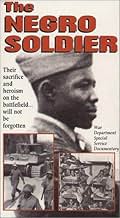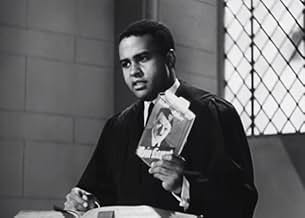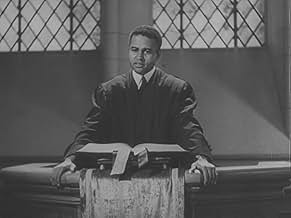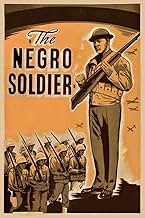Adicionar um enredo no seu idiomaDocumentary focusing on the contributions to the American war effort of African-American soldiers.Documentary focusing on the contributions to the American war effort of African-American soldiers.Documentary focusing on the contributions to the American war effort of African-American soldiers.
- Prêmios
- 1 vitória no total
Clyde Turner
- Soloist in Church
- (as Sgt. Clyde Turner)
Bertha Woolford
- Mrs. Bronson
- (as Bertha Wolford)
Norman Ford
- Lt. Robert E. Bronson
- (as Lt. Norman Ford)
Gertrude Elise Ayer
- Self - Principal
- (cenas de arquivo)
Richmond Barthé
- Self - Sculptor
- (cenas de arquivo)
- (as Richard Barthe)
Erich Borchmeyer
- Self
- (cenas de arquivo)
Dean Dixon
- Self - Conductor
- (cenas de arquivo)
W.C. Handy
- Self
- (cenas de arquivo)
Matthew Henson
- Self - Polar Explorer
- (cenas de arquivo)
Adolf Hitler
- Self
- (cenas de arquivo)
Cornelius Johnson
- Self
- (cenas de arquivo)
Henry Johnson
- Self - WW1 Soldier
- (cenas de arquivo)
Ralph Metcalfe
- Self
- (cenas de arquivo)
Lawrence Reddick
- Self - Museum Curator
- (cenas de arquivo)
Enredo
Você sabia?
- CuriosidadesIn 2011, the film was selected for preservation in the National Film Registry by the Library of Congress with the following statement: "'The Negro Soldier' showcased the contributions of blacks to American society and their heroism in the nation's wars, portraying them in a dignified, realistic, and far less stereotypical manner than they had been depicted in previous Hollywood films."
- Versões alternativasAccording to government documents, a two-reel shortened version of the film was released in July 1944.
Avaliação em destaque
Documentary focusing on the contributions to the American war effort of African-American soldiers.
The film was produced by Frank Capra as a follow up to his successful film series "Why We Fight". The army used this film as propaganda to convince Black Americans to enlist in the army and fight in the war. Most people regarded the film very highly, some going as far as to say that "The Negro Soldier" was "one of the finest things that ever happened to America".
In different movies during this time period, African Americans were often portrayed as humorous characters. However, after "The Negro Soldier", African Americans played more respectable and prominent roles in films. I don't know if this film is directly connected to the new way these men were shown in film. I can acknowledge there was definitely a post-war shift. And it might be as simple as saying that white men and black men fought together, making them more unified in the 1940s... but that would disregard the role that minorities had in earlier wars.
The film was produced by Frank Capra as a follow up to his successful film series "Why We Fight". The army used this film as propaganda to convince Black Americans to enlist in the army and fight in the war. Most people regarded the film very highly, some going as far as to say that "The Negro Soldier" was "one of the finest things that ever happened to America".
In different movies during this time period, African Americans were often portrayed as humorous characters. However, after "The Negro Soldier", African Americans played more respectable and prominent roles in films. I don't know if this film is directly connected to the new way these men were shown in film. I can acknowledge there was definitely a post-war shift. And it might be as simple as saying that white men and black men fought together, making them more unified in the 1940s... but that would disregard the role that minorities had in earlier wars.
- gavin6942
- 20 de mai. de 2016
- Link permanente
Principais escolhas
Faça login para avaliar e ver a lista de recomendações personalizadas
Detalhes
Bilheteria
- Orçamento
- US$ 78.254 (estimativa)
- Tempo de duração43 minutos
- Cor
- Mixagem de som
- Proporção
- 1.37 : 1
Contribua para esta página
Sugerir uma alteração ou adicionar conteúdo ausente

Principal brecha
By what name was The Negro Soldier (1944) officially released in Canada in English?
Responda
























